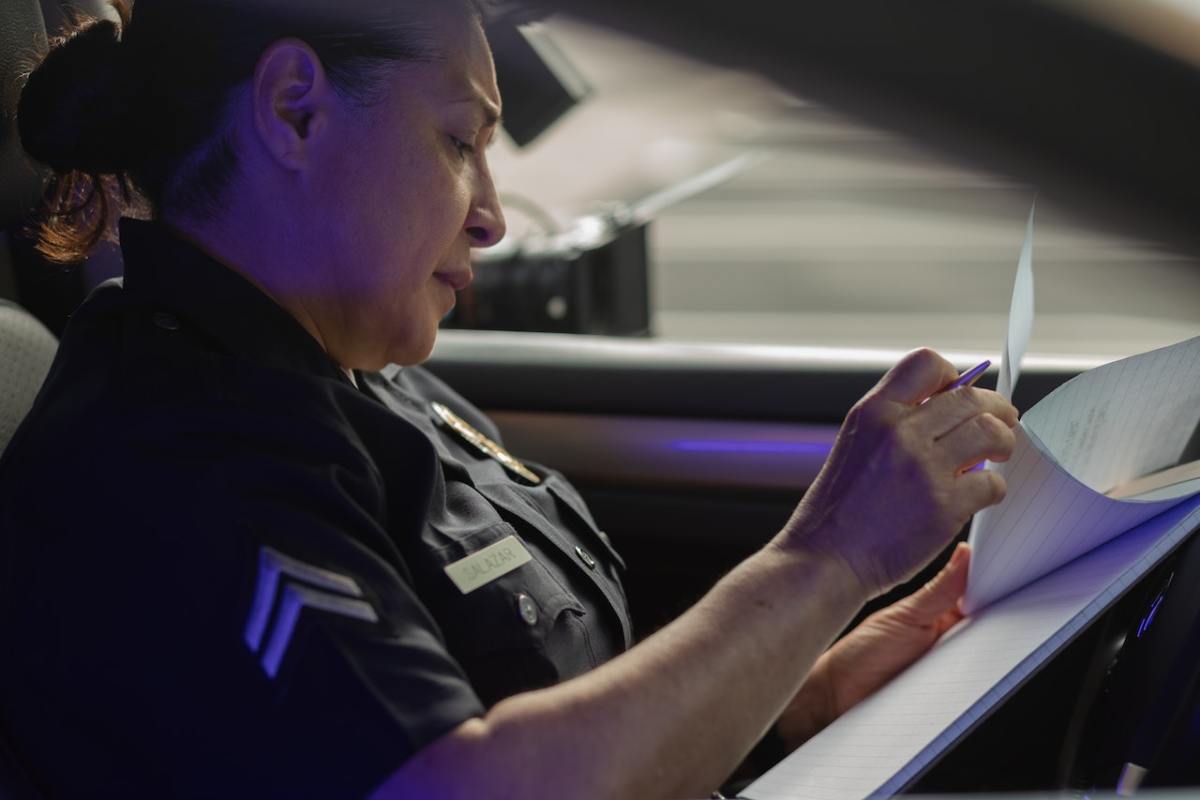How to deal with police officers and know your rights

Know your rights!
Police officers are not your friends, they have no intention of being your friend although they may seem friendly enough. When a cop approaches some one or pulls someone up for a traffic stop, they are on a hunting expedition to find anything they can against a person. Because the more fines cops hand out, the more things that they find out and figure out, the more likely that they are to get promoted.
Most cops are just doing their jobs, but there is the odd one who's got a particularly mean streak. A police officers job is to 'protect and serve.', but this also involves giving out fines, (traffic cops generally have a minimum amount of fines that they must allocate per day- in order for the government to get their cut.) Lying to the public, (by law police officers are entitled to lie in order to gain information.) Sometimes police officers even display unjust behaviour which they are certainly not entitled to do. People have been beaten to death by cops, they be can rude and the odd, control hungry one might get a bit 'rough', that's one reason why it's not a good idea to piss them off to begin with.
Don't forget that police officers are trained to detect lies, decipher body language, and they are trained to be manipulative, some of them are professional con-artists.
Never engage in a 'friendly conversation' with a cop, more often than not, when a cop attempts to engage in 'friendly conversation', their actually digging, digging for information about something to ping you for, or maybe information about someone that they think your might be linked to.Avoid saying anything more than necessary to a cop, and never swear at a police officer or address them disrespectfully. If you are rude to a police officer, it's likely that they will find more than one thing to fine you for.
Regardless of where you are and what you're doing when a police officer asks you for I.D, you must provide correct I.D. It's an offence to tell a police officer incorrect information, and if you do, expect to be charged for it and it will go on your criminal record. Police officers also have the right to ask you for you phone-number and address, you must answer these questions truthfully also. Besides those specific questions, you are not obliged to answer any other questions that a police officer.may ask.
When you are approached by a cop and asked for I.D, they must have a rational clear reason why they are singling you out. You should be able to,( if you CHOOSE to), ask the cop why they pulled you over or approached you, the police officer then should be able to give you a reasonable explanation. If the police officer can't or doesn't provide a reasonable explanation, you may ask, 'Am i free to go now?' If you have been approached by a cop and asked for I.D, you have provided it, and the cop continues to question you further, it's always best to ask, 'Am i free to go now?' Don't allow cops to pry at you for personal information, they have no right to do so. Or of course you could practice your right to remain silent, but that's likely to anger a cop when he's in your face asking questions.
Remember, any thing you DO say can and will be held against you.
When a cop is questioning you and you are not answering his questions, he may try to force you to answer his questions by threatening you. More often than not these threats are pretty empty, they're mere lies to scare you into talking, so they can do some digging. A few common lies they tell to trick you into talking:
'You're not going anywhere until you answer my questions'/'You must answer my questions.'
'I'll have no choice but to arrest you if you don't answer my questions.'
'You will be charged with resisting arrest if you don't answer my questions.'
'We have evidence on you that will be used if you don't answer my questions.'
Police officers are trained to twist their words manipulatively, and there's many other lies they will tell to get digging access. The important thing to remember is that the above statements are in fact lies. They may also try to make 'deals' with you, IE: 'Tell me what i want to know and I'll go easy on you for all the fines i should be giving you.'
A police officer has no authority to make such deals, the only person whom is in entitled to make compromise deals is a prosecutor.'
If a police officer attempts to arrest you, they must have reason to believe that you have broken the law or that you have intentions of breaking the law. The police officer should be able to tell you exactly why you are being arrested. If you are arrested, ask for a lawyer, and don't say anything to the cops until you have spoken with a lawyer.
If you cannot afford a lawyer, ask for a public defender, which should cost you nothing. If you end up with a public defender, state to the police officers that your public defender is not representing you. Make it clear the the public defender is serving as your council only. If you end up having to go to court, it's best to acquire a lawyer for this date. A lawyer has a much better chance at defending you than a public defender or yourself.
When you are arrested, officers have the right to seize any items you may have on you. You should receive a receipt for every item seized, and your property should be returned to you upon release. Unless of course, you happen to have drugs in your pockets, you won't be seeing those again. But if an officer asks you to empty your pockets and you haven't been arrested yet, you are not obliged to.
If a police officer happens to turn up on your door-step, avoid opening the door. When people have opened their doors to cops, cops have sometimes been known to push their way on through and begin searching through peoples belongings without authorization. So if they turn up on your door step, say to them through the door, 'I have nothing to say to you.' If they don't have a warrant, they must leave. If they do have a warrant, they will say so, and you must let them in. Ask to see the warrant and check that the date, and your address is correct, and that it is signed. If anything on the warrant is incorrect, tell them to leave and come back with some real evidence. For a police officer to attain a search warrant, they must prove to a judge that they have evidence that someone has broken the law, or intends to. As it's not necessarily simple for police officers to attain search warrants, they have been know to fabricate them.
If you have been pulled over by a police officer in your car, they are allowed to search your car without a warrant if either. a) They 'think' they can smell weed, or think that you are on drugs. B) Because they have reason to believe that you have been drink driving. Otherwise, they have no right to search your car and you may refuse.
If you ever feel that a police officer is abusing your rights, ask him to call his 'supervisor'. Also you have the right to ask the police officer for his name, rank, station, and station phone number. If you feel you have been treated unfairly, you acquire this information from the police officer and report him to the station.









